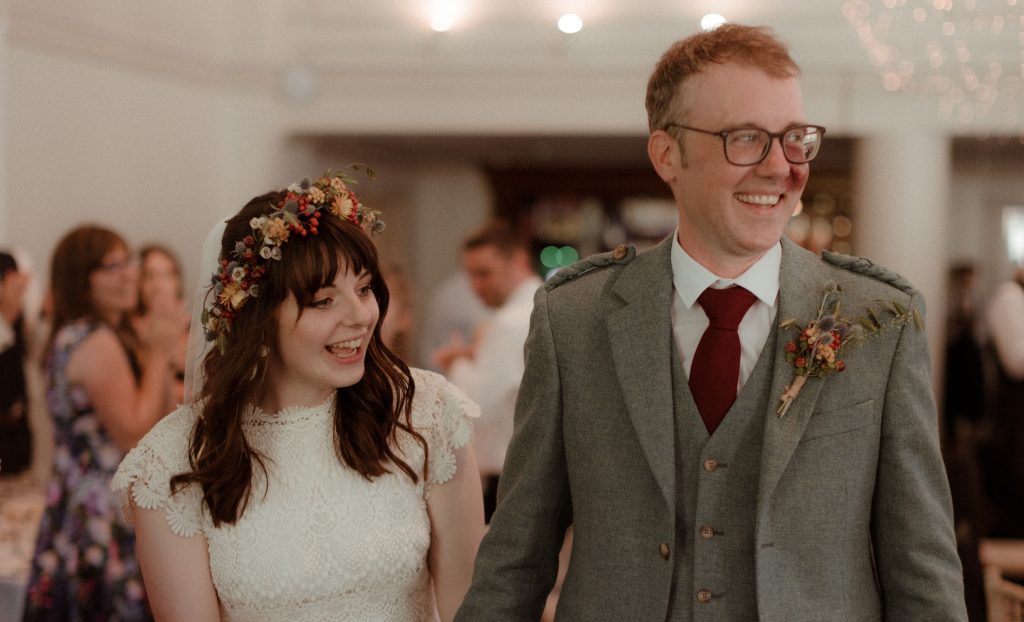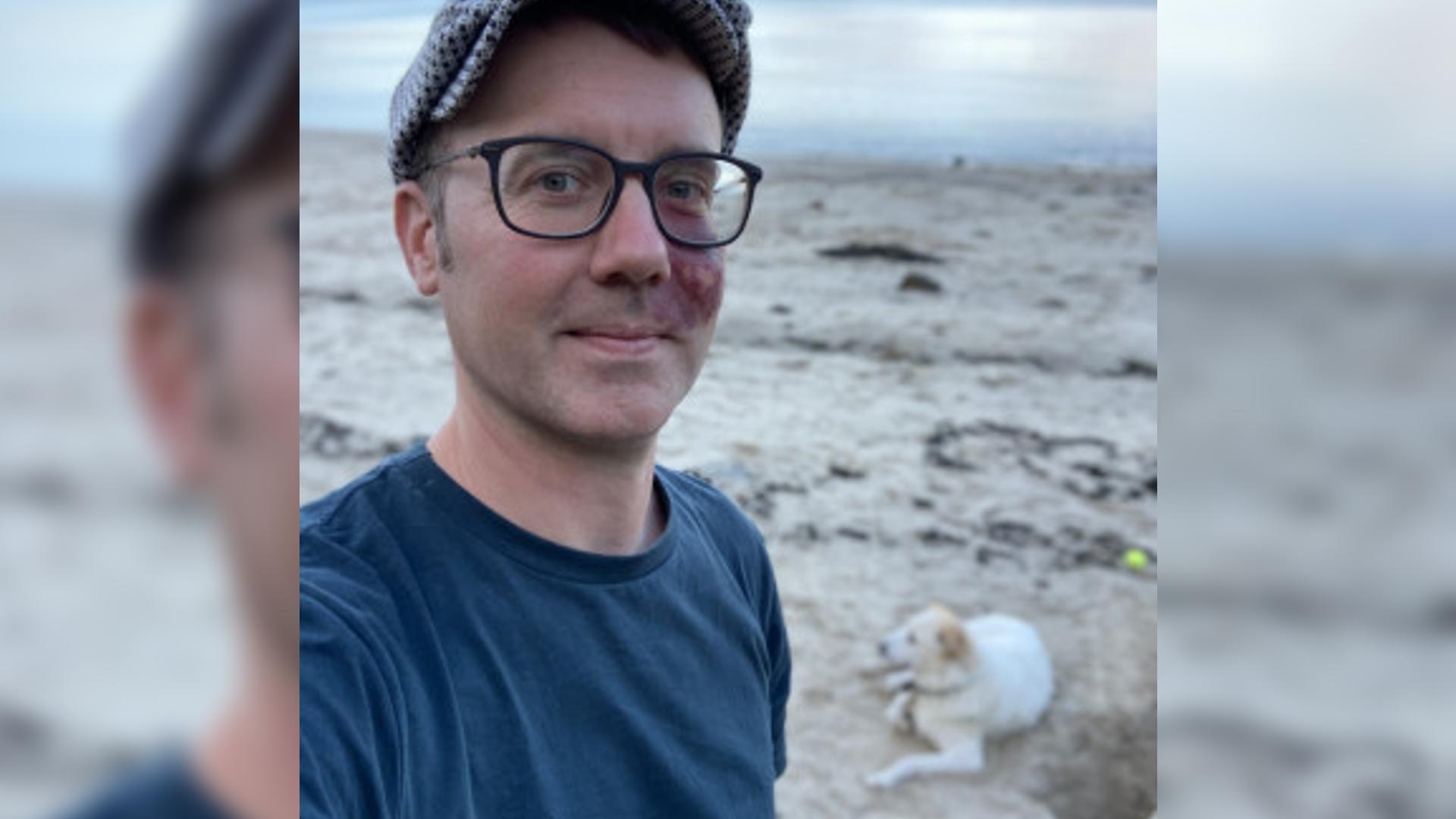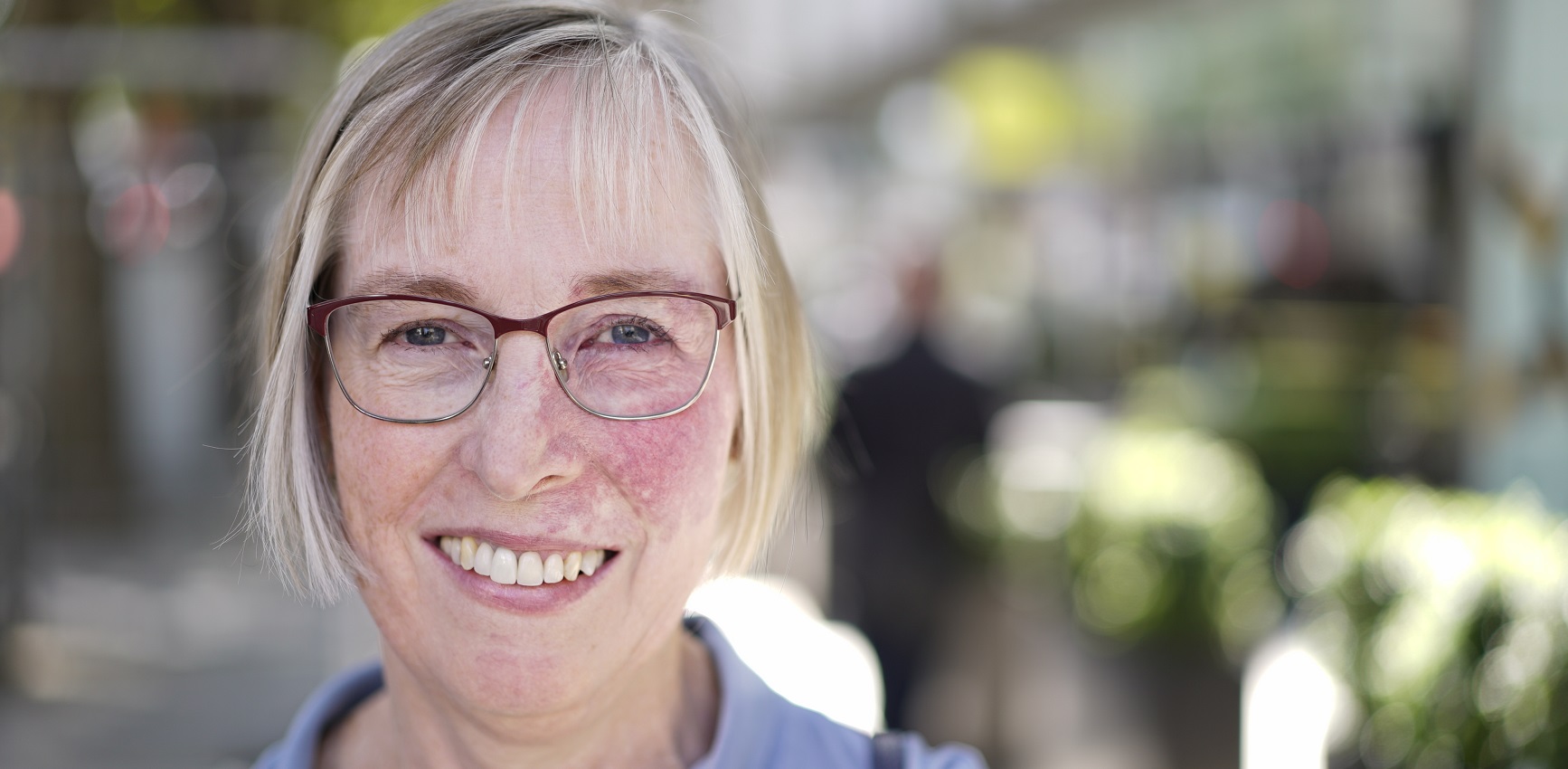I’m Chris and I have a nevus flammeus on my left cheek, commonly known as a “port wine stain” birthmark. I’m not a fan of this terminology, as “stain” sounds like something has been spoiled or ruined and I certainly don’t think that of this part of myself.
I remember becoming fully conscious of my visible difference when I was four or five years old during a conversation with my mum. She’d been bullied at school for having prominent front teeth (the other kids called her “goofy”) and she was concerned that I would also become a victim of abusive behaviour because of my birthmark.
This conversation is a vivid memory that has always stayed with me, and I distinctly remember her saying to me that I could grow a moustache when I was older to “cover up” part of my birthmark. Although I know my mum was coming from a place of loving concern based on her own negative experience, I do remember thinking that it was odd how this mark on my face was somehow considered a bad or unattractive thing.
Everything went well at nursery school, but later at primary school some children would comment on my birthmark in the playground. One girl, for example, who was known as a bully, liked to chant “devil child” at me over and over again. Aside from this repeated taunting, I was never subject to any sustained bullying. I think because I always reacted with incredulity to the would-be bullies, they always gave up!
Sometimes having a visible difference is like having a “barometer” for knowing who to trust; it speeds up the process of knowing whether someone will be a good friend in the long term.
Throughout my life I have received occasional comments and invasive stares in the street. Depending on my mood and confidence levels that day, these things can sometimes get to me. On one occasion, when I was eight years old, I was tripped over in the playground by a boy who would call me names. I chipped the front of my tooth on the tarmac as I’d been running quickly. I remember feeling a strong sense of injustice over the headmaster’s response at the time, as when I was called into his office, I was blamed for running in the playground, and the boy who tripped me over went unpunished. Experiences like these motivate me to want to fight for change for the visible difference community.
It’s difficult to say exactly what impact having a birthmark has had on my life, and I think this “not knowing” is probably one of the hardest things about having a visible difference. I’ve had several job interviews that I felt went really well, receiving excellent feedback on request, and yet not got the position: who knows what conscious or unconscious prejudices I’ve faced over the years in interview situations?
On the other hand, I’ve also experienced being idealised by people, especially within academia. I felt like I was elevated above and beyond my peers, only to be turned on by some when I didn’t conform to the high expectations that had been placed on me i.e. when I revealed myself as only human and capable of making mistakes. Sometimes this idealisation can be harder to deal with than obviously negative experiences in the long run, since we are all susceptible to flattery and tend to assume the best of people.
Thankfully, I’ve been very lucky to have met many open-minded and kind people in my life too. Close friends and family don’t notice my birthmark, they see “Chris” and they forget that I even have one. Sometimes having a visible difference is like having a “barometer” for knowing who to trust; it speeds up the process of knowing whether someone will be a good friend in the long term. It has been a steep learning curve, but knowing when to trust my feelings of unease around certain people has really allowed me to move away from negative influences in my life.
However, while I have an amazing support network around me, I do still feel uncomfortable in certain situations. Around large groups of people I’m probably always going to feel a little bit wary, and in the past, I’ve been prone to feeling emotionally detached during public events. The reality is that if you have a visible difference, people do stare. They stare all the time: on every walk through the park or down the high street, they will be staring. The reasons for this aren’t necessarily vindictive, especially when it comes to children, but detaching from this and placing myself in a state of wilful ignorance has been a coping mechanism for me.
In 2022 I had a breakthrough. I married my amazing wife Rachael in August, and I was nervous about being the centre of attention on our big day, even though I knew we’d be surrounded by the people we love. However, I successfully exchanged my vows, gave my groom’s speech and got through our first dance (I’m a terrible dancer!), and did so without detaching myself from the situation. It was a massive confidence boost.

Chris was able to enjoy his wedding while staying in the moment
I realised that it was the first time I’d ever really enjoyed being the centre of attention at a large event and I felt completely accepted.
It’s so important to surround yourself with people who make you feel comfortable for big events like a wedding. My wife and I were very lucky to find a brilliant pastor to perform our ceremony, who put us both at ease and helped us to think about our wedding beyond the day itself, putting it in the wider context of our marriage as a whole. Doing this took away some of the pressure on the day.
I also got up early on the morning of the wedding and went for a long walk with my dog before anyone else was up. This physical exercise and connection with nature helped me to relax. I think it’s really important to recognise that you will be nervous and excited at times – getting married is a big event in your life – and this is okay.
A wedding can be a great opportunity to speak with strangers about your visible difference in a welcoming environment.
During the wedding, I tried to engage with as many people as possible. I thought about it as a brilliant opportunity to (briefly) catch up with friends and family who in some case I hadn’t seen for years. I also made an effort to grab some moments of reflection with my wife to ground me, as many friends and family had warned me that if you don’t consciously do this, it can all pass in a blur. Practising my speech several times really helped too, it felt comforting to be prepared. Prosecco was also quite a useful confidence boost on the day!
My three top tips for people who might be feeling nervous about their wedding because of their visible difference are:
- Remember that you’ll be surrounded by family and friends, people who know you very well and who see you as “you”. So, if there are unknown quantities there, people who don’t know you and who might stare, there should be plenty of others to turn to if you’re feeling self-conscious.
- Weddings tend to be very positive and happy affairs, so think of it as a big party where people are (usually) on their best behaviour and less likely to be judgmental. A wedding can be a great opportunity to speak with strangers about your visible difference in a welcoming environment.
- Don’t let consciousness of your visible difference hold you back from having a good time. Remember that everyone is there to have fun and don’t be afraid to hit the dancefloor, even if you’re a terrible dancer like me!
It has taken me a long time to get to this place, but I now try to return invasive stares with a smile and a cheery greeting. It’s surprising how often this works, as many people who stare at my birthmark are simply curious about something they are ignorant about. People often assume that I’ve been in a fight or been burnt in a fire. Such comments build up over the years and you realise how many wrong assumptions people can have about you. Often, it’s up to you to enlighten them.
I feel very privileged to have a visible difference and to be able to represent a broader community through volunteering with Changing Faces. I hope that by campaigning for Changing Faces, I can help others to feel confident about their visible differences and realise that you can live a successful and fulfilled life. Not a “special” one marked out as that of an angelic hero or a tragic villain, but your own valuable and unique life. We need to own our narratives to combat the ignorance of others.
I would like to see people with visible differences noticeably succeeding, for example as actors, musicians, models, comedians, politicians and so on – people in positions of power and influence. Nearly one in five people in the UK self-identify as having a visible difference, so why isn’t that reflected in our media landscape? Things are changing for the better, thanks to organisations like Changing Faces, but there’s still a long way to go.

